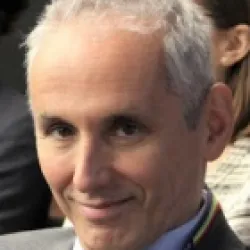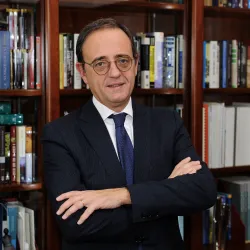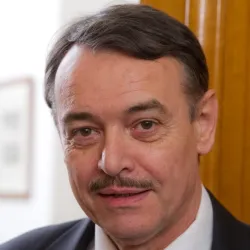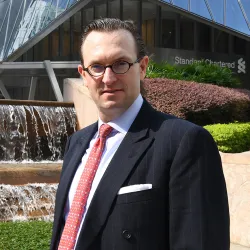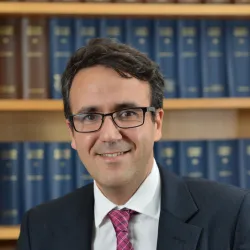Macro-prudential Policy: Implementing the Financial Stability Mandate 2021 main page
Macro-prudential Policy: Implementing the Financial Stability Mandate
Macro-prudential Policy: Implementing the Financial Stability Mandate
May 10 – 13
Chair: Maria Nieto, senior advisor, Bank of Spain
What are the financial stability implications to the banking and non-banking sector, firstly in the Covid-19 era and secondly the digitisation era? What does it take to design, implement and enforce an effective framework for a sustainable, robust and resilient ecosystem? How would a disorderly transition to a low carbon economy affect the economy and the financial system? And is the macro-prudential toolkit flexible enough to adapt to the new challenges?
For those charged with managing financial stability within central banks, these are just some of the major questions they are facing when addressing systemic risks in the global financial system. A truly global crisis, Covid-19 can offer many learnings for managing financial stability. And the risks and demands do not stand still. Technology is changing not just markets but the way financial stability policy makers and experts work. Environmental, Social and Governance (ESG) is increasingly identified as an important risk factor in the rapidly changing and dynamic global financial system.
Chaired by Maria Nieto, and a roster of speakers from central banks around the world, this course will address the key challenges confronting financial stability and present effective tools and frameworks to overcome them.
Each day will feature three hours of expert-led live content to maximise the opportunity to share and learn. The course chair will ensure participants have opportunities to network throughout the programme.
Global timezone: 11am-2pm (BST) | 6am-9am (ET) | 6pm-9pm (SGT)
Course Agenda
Two weeks prior to your training course you will be emailed access to our content hub with course materials, including a trial to Central Banking if you are not already subscribed. There will be a combination of articles, reports and presentations that will contribute to two hours of preparation time for the live content. Presentations for the sessions will also be held here subject to the speaker approval.
Macro-prudential Policy: Navigating a Volatile Landscape
11:00 – 11:15
Course introduction
Course introduction session led by the chair
11:00 - 11:15
- Introductions and welcome from the chairperson
- Overview of the training course
- Discussion of the delegate expectations
11:15 – 11:45
Macro-prudential policies: policy responses to Covid-19
11:05 - 11:45
- Tips for effective coordination and calibration of macro- and micro-prudential policy
- Implications for institutional arrangements and organisation
- Examples of mechanisms for a continuous exchange of information for conflict resolution
- Case study: Macro- and micro-prudential supervision in a Covid-19 era
John Fell
Deputy director general, macro-prudential policy and financial stability
European Central Bank
John Fell is Deputy Director General for Macroprudential Policy & Financial Stability in the ECB. He is also the chair or co-chair of several international working groups - including the Eurosystem’s Macroprudential Policy Group (MPPG), the European Systemic Risk Board’s (ESRB) Instrument Working Group (IWG), and the ESRB’s task force on stress-testing. He is a member of the ECB’s Financial Stability Committee (FSC), the ESRB’s Advisory Technical Committee (ATC), and the Financial Stability Board’s Standing Committee on Assessing Vulnerabilities (SCAV). He led the stress-testing work for the ECB’s “comprehensive assessment” in 2014 as well as EU-wide banking sector stress-tests coordinated by the Committee of European Banking Supervisors (CEBS) (2009, 2010) and the European Banking Authority (EBA) (2011, 2014). His crisis management experience is extensive, including negotiating EU/IMF financial assistance programs in several euro area countries (e.g. in Ireland, Portugal and Spain). Between 2003 and 2010, he was Head of the ECB’s Financial Stability Division, spearheading the inaugural issue of the ECB’s Financial Stability Review in 2004 and directing it thereafter. Before moving to the financial stability area in 2003, he was an Adviser in the ECB’s Monetary Policy Directorate. Prior to joining the ECB in 1998, as a principal economist, he held various positions at the European Monetary Institute (EMI) and the Central Bank of Ireland. John holds postgraduate degrees in Economics (1987) and in Finance (1993) from University College Dublin and Dublin City University respectively, and is a PhD candidate at the Rotterdam School of Management, Erasmus University. He has published his research in several academic and policy journals.
11:45 – 12:00
First break
11:45 - 12:00
12:00 – 12:45
Making the most of big data and advanced analytics in macro-prudential analysis
12:00 - 12:45
- Big data
- Big data and central banks
- Opportunities & risks
- Applications to systemic risk
Stefano Borgioli is a Senior Team Lead - Economist-Statistician in the Monetary & Economic Statistics Division of the Directorate General Statistics of the European Central Bank (ECB). He joined the ECB in April 1999 after 3-year working experience as an economist in the Macro-Prudential Department of Banca d’Italia. He had temporary stints in both the Directorate General Macroprudential Policy & Financial Stability and the Directorate General Economics of the ECB.
He has worked extensively on banking statistics, statistics for macroprudential analysis and financial integration. He published in these areas and he frequently gives lectures at Universities (Politecnico di Milano, University of Florence, University of Frankurt).
12:45 – 13:00
Second break
12:45 - 13:00
13:00 – 13:45
Climate change stress testing
13:00 - 13:45
- Elements of a Climate Change Stress Test exercise
- Objectives
- Scenario design and narrative
- Evaluation of financial impacts
- Forward looking assessment: resilience, implications for business models, potential responses
- The role of stress testing when dealing with climate-financial risks
- Complementarity with other policy actions
- Extensions: financial stability, insurance sector and other financial markets
Pedro Duarte Neves is Adviser for the Board of Directors of Banco de Portugal. He was Vice-Governor of Banco de Portugal from June 2006 to September 2017. Pedro Duarte Neves participated at the main high-level supervisory and regulatory fora like the EBA, SSM, ESRB, and FSB. He was Alternate Chairperson of the EBA from July 2013 to June 2018 and he has chaired a number of committees in the scope of the FSB, EBA, and the Joint Committee of the ESAs. His research interests include banking supervision and regulation, macro-prudential policy, and the real economy.
Pedro Duarte Neves is a Visiting Professor at Católica Lisbon School of Business and Economics. He is also Associate at the Systemic Risk Centre, London School of Economics. Pedro Duarte Neves holds a PhD in Economics from Université Catholique de Louvain. He published in scientific journals like The Journal of Econometrics, Economics Letters and Economic Modelling.
Building an Effective Framework against Systemic Risk
11:00 – 11:45
Formulation of macro-prudential policies: implementation and governance issues
11:00 - 11:45
- Key steps for the effective design of macro-prudential policy
- Ensuring effective use of policy tools and instruments
- Main operational and governance challenges, institutional limitations and how to overcome them
- Discussion: formulation, implementation, and governance of macro-prudential policy in the delegates’ jurisdictions
Currently an international consultant in central banking and financial sector issues, Christian Durand was until 2018 deputy comptroller general of Banque de France, with direct reporting to the governor. His domain of responsibility included the audit function, operational risks and on-site inspections conducted by French examiners at the request of the Single Supervisory Mechanism (SSM) or the French banking supervision authority. Before that, he was deputy director general for economics and international affairs at the Banque de France, and in this context was a member of Banque de France Monetary and Financial Stability Policy Committees and regularly attended CGFS meetings at the BIS. During his career, Mr. Durand has held senior positions with the International Monetary Fund’s Monetary and Capital Markets Department, the French Banking Supervisory Authority and the French Securities and Futures Commission and led negotiations ending with the signing of MOUs with the US Securities and Exchange Commission (SEC) and Commodity Futures Trading Commission (CFTC). He has also worked extensively with financial institutions in France and other organizations, including the New York Federal Reserve Bank, the International Organization of Securities Commissions (IOSCO), FIRST initiative and the AFRITAC project. Through his different assignments he has developed a professional experience in central banking, international economics, financial supervision and financial sector development and stability issues. He has conducted or supervised the implementation of several technical assistance projects for the EU, the IMF or the Banque de France and led, for the IMF FSAP program, financial stability assessment missions in a wide range of countries starting with Cameroon in 1999 and ending with the United States in 2010. His academic education is in economics (thesis on “the concept of money in the controversies on capital, interest and fluctuations in the early thirties”), finance and law.
11:45 – 12:00
First break
11:45 - 12:00
12:00 – 12:45
The central credit register and effective calibration of macro-prudential instruments
12:30 - 12:45
- Overview of central credit registers as micro- and macro-prudential tools
- Examples of credit register data applications for detecting risk build-up and concentration
- Tips for calibration of macro-prudential instruments and assessment of their effectiveness
- Case study: building a new central credit register framework
Selva Bahar Baziki
Director, banking and financial institutions department
Central Bank of the Republic of Turkey
12:45 – 13:00
Second break
12:45 - 13:00
13:00 – 13:45
Shadow banking and its role in the recent Covid-19 crisis
13:00 - 13:45
- Recent developments in shadow banking: some relevant statistics
- The role of shadow banking institutions during the Covid-19 crisis
- Is there a need to reassess the prudential regulatory approach?
Douglas W. Arner is the Kerry Holdings Professor in Law, RGC Senior Fellow in Digital Finance and Sustainable Development and Associate Director of the HKU-Standard Chartered Foundation FinTech Academy at the University of Hong Kong. In addition, he is Associate Dean (Taught Postgraduate and Development) of the Faculty of Law at HKU and co-founder and former Director of HKU’s Asian Institute of International Financial Law, as well as Faculty Director and co-founder of the LLM in Compliance and Regulation, the LLM in Corporate and Financial Law, the Law, Innovation, Technology and Entrepreneurship (LITE), and the East Asian International Economic Law and Policy Programmes. Douglas served as Head of the HKU Department of Law from 2011-2014, as Director of the Duke University-HKU Asia America Institute in Transnational Law from 2005-2016, and as an inaugural member of the Hong Kong Financial Services Development Council from 2013-2019. In 2020 he was awarded an inaugural Hong Kong Research Grants Council Senior Fellowship to study the role of digital finance in financial inclusion and the UN Sustainable Development Goals. Douglas is a Visiting Professor and Senior Visiting Fellow of Melbourne Law School of the University of Melbourne, a Visiting Professorial Fellow of the Faculty of Law of UNSW Sydney, a non-executive director of NASDAQ and Euronext listed biotechnology firm Aptorum Group, an Advisory Board Member of the Global Impact FinTech (GIFT) Forum, Policy 4.0 and of the Centre for Finance, Technology and Entrepreneurship (CFTE), and co-founder and an executive board member of the Asia Pacific Structured Finance Association. Douglas has published eighteen books and more than 200 articles, chapters and reports on international financial law and regulation, including most recently Reconceptualising Global Finance and its Regulation (Cambridge 2016) (with Ross Buckley and Emilios Avgouleas) and The RegTech Book (Wiley 2019 (Janos Barberis and Ross Buckley). His recent papers are available on SSRN at https://papers.ssrn.com/sol3/cf_dev/AbsByAuth.cfm?per_id=524849 , where he is among the top 50 authors in the world and among the top 15 authors in the area of law by total downloads. Douglas led the development of Introduction to FinTech – launched with edX in May 2018 and now with over 100,000 learners spanning almost every country in the world – and the foundation of the edx-HKU Online Professional Certificate in FinTech. In addition, he has served as a consultant with, among others, the World Bank, Asian Development Bank, UN, APEC, Alliance for Financial Inclusion, and European Bank for Reconstruction and Development. He has lectured, co-organised conferences and seminars and been involved with financial sector reform projects around the world. Douglas has been a visiting professor or fellow at Duke, Harvard, the Hong Kong Institute for Monetary Research, IDC Herzliya, McGill, Melbourne, National University of Singapore, University of New South Wales, Shanghai University of Finance and Economics, and Zurich, among others.Douglas W. Arner is the Kerry Holdings Professor in Law, RGC Senior Fellow in Digital Finance and Sustainable Development and Associate Director of the HKU-Standard Chartered Foundation FinTech Academy at the University of Hong Kong. In addition, he is Associate Dean (Taught Postgraduate and Development) of the Faculty of Law at HKU and co-founder and former Director of HKU’s Asian Institute of International Financial Law, as well as Faculty Director and co-founder of the LLM in Compliance and Regulation, the LLM in Corporate and Financial Law, the Law, Innovation, Technology and Entrepreneurship (LITE), and the East Asian International Economic Law and Policy Programmes. Douglas served as Head of the HKU Department of Law from 2011-2014, as Director of the Duke University-HKU Asia America Institute in Transnational Law from 2005-2016, and as an inaugural member of the Hong Kong Financial Services Development Council from 2013-2019. In 2020 he was awarded an inaugural Hong Kong Research Grants Council Senior Fellowship to study the role of digital finance in financial inclusion and the UN Sustainable Development Goals. Douglas is a Visiting Professor and Senior Visiting Fellow of Melbourne Law School of the University of Melbourne, a Visiting Professorial Fellow of the Faculty of Law of UNSW Sydney, a non-executive director of NASDAQ and Euronext listed biotechnology firm Aptorum Group, an Advisory Board Member of the Global Impact FinTech (GIFT) Forum, Policy 4.0 and of the Centre for Finance, Technology and Entrepreneurship (CFTE), and co-founder and an executive board member of the Asia Pacific Structured Finance Association. Douglas has published eighteen books and more than 200 articles, chapters and reports on international financial law and regulation, including most recently Reconceptualising Global Finance and its Regulation (Cambridge 2016) (with Ross Buckley and Emilios Avgouleas) and The RegTech Book (Wiley 2019 (Janos Barberis and Ross Buckley). His recent papers are available on SSRN at https://papers.ssrn.com/sol3/cf_dev/AbsByAuth.cfm?per_id=524849 , where he is among the top 50 authors in the world and among the top 15 authors in the area of law by total downloads. Douglas led the development of Introduction to FinTech – launched with edX in May 2018 and now with over 100,000 learners spanning almost every country in the world – and the foundation of the edx-HKU Online Professional Certificate in FinTech. In addition, he has served as a consultant with, among others, the World Bank, Asian Development Bank, UN, APEC, Alliance for Financial Inclusion, and European Bank for Reconstruction and Development. He has lectured, co-organised conferences and seminars and been involved with financial sector reform projects around the world. Douglas has been a visiting professor or fellow at Duke, Harvard, the Hong Kong Institute for Monetary Research, IDC Herzliya, McGill, Melbourne, National University of Singapore, University of New South Wales, Shanghai University of Finance and Economics, and Zurich, among others.
Expanding the Financial Stability Toolkit
11:00 – 11:45
Monetary policy and financial stability: longevity of ‘leaning against the wind'
11:00 - 11:45
- Key areas of interactions between financial stability and monetary policy
- Overview of dilemmas associated with ‘leaning against the wind’
- Implications for risk taking, credit and asset prices
- Discussion: How closely should decision on macro-prudential and monetary policy be integrated?
Karsten Gerdrup
Director, macroeconometric modelling - monetary policy and financial stability
Norges Bank
11:45 – 12:00
First break
11:45 - 12:00
12:00 – 12:45
Understanding the dynamics of financial stability: Financial Sector Stability Assessments
12:00 - 12:45
- Conceptual underpinnings of Financial Sector Assessment Program (FSAP)
- Discussion of a case study
Daniel C. Hardy is currently a Senior Research Associate at the Vienna Institute for International Economic Research, and a consultant on economic policy issues. He spent many years at the International Monetary Fund, leading work on macroeconomic and financial sector surveillance; Fund-supported programs; Fund policies; and technical assistance in a wide range of industrialized, emerging market, and developing countries. Most recently he was head of the Debt Capital Markets Division and led numerous FSAPs. He has also held positions at the Deutsche Bundesbank and the Austrian Financial Market Authority, and been an academic visitor at St. Antony’s College, Oxford, and the Vienna University of Economics and Business. His recent research has addressed topics in public sector governance; the functioning of the European Monetary Union and the Capital Market Union; and sovereign debt management. He studied at the universities of Oxford and Princeton.
12:45 – 13:00
Second break
12:45 - 13:00
13:00 – 13:45
Systemic stress-testing new tools and frameworks: is Covid-19 prompting a reassessment?
13:00 - 13:45
- The evolving role of systemic stress-testing in financial stability assessment
- Building blocks of an effective stress-testing framework
- Opportunities and challenges for stress-testing in Corona times
- Discussion: is Covid-19 prompting a reassessment?
Jérôme Henry
Principal adviser, macroprudential policy and financial stability
European Central Bank
Jérôme Henry is the principal adviser in the European Central Bank (ECB) macroprudential policy and financial stability division. His responsibilities cover financial stability assessments and the related infrastructure requirements. Henry has led ECB teams for quality assurance of the single supervisory mechanism stress tests and was involved in country crisis management. He also worked at the Bank for International Settlements as a Financial Stability Institute fellow. Prior to this, Henry was a long-standing Eurosystem forecast co-ordinator. He started his time at the ECB leading the macromodelling team. Prior to his central bank career, Henry conducted research at the French Economic Observatory and the French National Institute of Statistics and Economic Studies. He is a founding member of the Centre for Economic Policy Research Euro Area Business Cycle Network. An Ensae Paris graduate, Henry holds a PhD in Economics and a bachelors degree in History from Paris Sorbonne.
Topical Issues of Financial Stability
11:00 – 11:45
Debt restructuring in the Covid-19 era: A reassessment of insolvency procedures both for corporates and sovereigns
11:00 - 11:45
- Requirements of effective corporate liquidation procedures
- Corporate debt: Out of court vs court supervised procedures
- Sovereign debt restructuring: recent initiatives proposed by the G-20
Rodrigo Olivares-Caminal is a Professor in Banking and Finance Law at the Centre for Commercial Law Studies (CCLS) at Queen Mary University of London. Prior to joining CCLS he was a Senior Lecturer in Financial Law and the Academic Director at the Centre for Financial and Management Studies (SOAS), University of London and the School of Law, University of Warwick. He taught in undergraduate and postgraduate courses in various Schools of Law and Business Schools in the United Kingdom, Spain, Greece, France and Argentina as well as in professional training courses in Africa, Asia and Europe. He has acted as a Sovereign Debt Expert for the United Nations Conference on Trade and Development (UNCTAD), Senior Insolvency Expert for the World Bank / IFC and as a consultant to several multilateral institutions in Washington DC and Europe, Central Banks and Sovereign States as well as in several international transactions with Law Firms. He specialises in international finance and insolvency law. He is the author/editor of seven books and has extensively published in peer-reviewed journals. He sits in the editorial/advisory board of several law journals in the UK and US and is a member of national and international institutions and associations specialised in comparative commercial and insolvency law.
11:45 – 12:00
First break
11:45 - 12:00
12:00 – 12:45
Financial stability and the evolution of global interest rates: how low for how long?
12:00 - 12:45
- Causes of the secular decline in interest rates
- Stability implications
- Effects on Emerging Markets
- Recent developments and risk factors
- Possible policy responses
Daniel C. Hardy is currently a Senior Research Associate at the Vienna Institute for International Economic Research, and a consultant on economic policy issues. He spent many years at the International Monetary Fund, leading work on macroeconomic and financial sector surveillance; Fund-supported programs; Fund policies; and technical assistance in a wide range of industrialized, emerging market, and developing countries. Most recently he was head of the Debt Capital Markets Division and led numerous FSAPs. He has also held positions at the Deutsche Bundesbank and the Austrian Financial Market Authority, and been an academic visitor at St. Antony’s College, Oxford, and the Vienna University of Economics and Business. His recent research has addressed topics in public sector governance; the functioning of the European Monetary Union and the Capital Market Union; and sovereign debt management. He studied at the universities of Oxford and Princeton.
12:45 – 13:00
Second break
12:45 - 13:00
13:00 – 13:30
Closing remarks and delegate action plans
Concluding session led by the chair
13:00 - 13:30
- Summary of the course
- Discussion of the observed trends and case studies
- Application of learning points in the delegates’ home organisations
- Preparation of action points
The Implementation Workshop is a chair-led forum where attendees will have the opportunity to discuss challenges around implementing the ideas they have learnt during the Live Content. Prior to the workshop you will be emailed questions to prepare in order to gain the most from the session with peers.
11:00 – 12:00
Implementation Workshop
11:00 - 12:00
Benefits of attending the Implementation Workshop:
- Developments in the area since the live content sessions, including new resource material
- Questions arising since returning to the central bank
- Challenges of implementation: where are the roadblocks?
- Medium-term goals: what is realistic?
- Establishment of group network to keep in touch with peers and share best practices
Learning outcomes
At the conclusion of the training, participants will be able to:
- Effectively design a macro-prudential policy
- Create scenario based stress testing for climate financial risks
- Build a framework for systemic stress testing
- Understand how to measure their macro-prudential instruments’ effectiveness
- Assess insolvency procedures for corporates and sovereigns
Chair
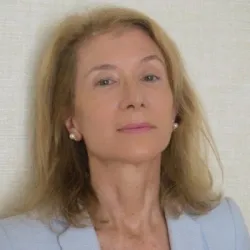
Maria Nieto
London School of Economics
Visiting senior fellow
María J. Nieto (PhD) is a Visiting Senior Fellow at the London School of Economics (Grantham Research Institute), Member of EBI and former Senior Advisor at Bank of Spain. She is author of numerous peer-reviewed articles (Journal of Banking and Finance, Journal of Financial Stability, Journal of International Financial Markets, Institutions and Money among others). She has cooperated as advisor with the International Monetary Fund and the Federal Reserve Bank of Atlanta for over 10 years and she serves on the advisory boards of the Journal of Financial Regulation and Compliance, the Journal of Financial Regulation, the Central Banking Training Advisory Board (UK) and the Institute of International Monetary Economics (UK). She has a PhD from University Complutense de Madrid, an MBA in finance from the University of California, Los Angeles (UCLA), and is a Certified Public Accountant (CPA)

